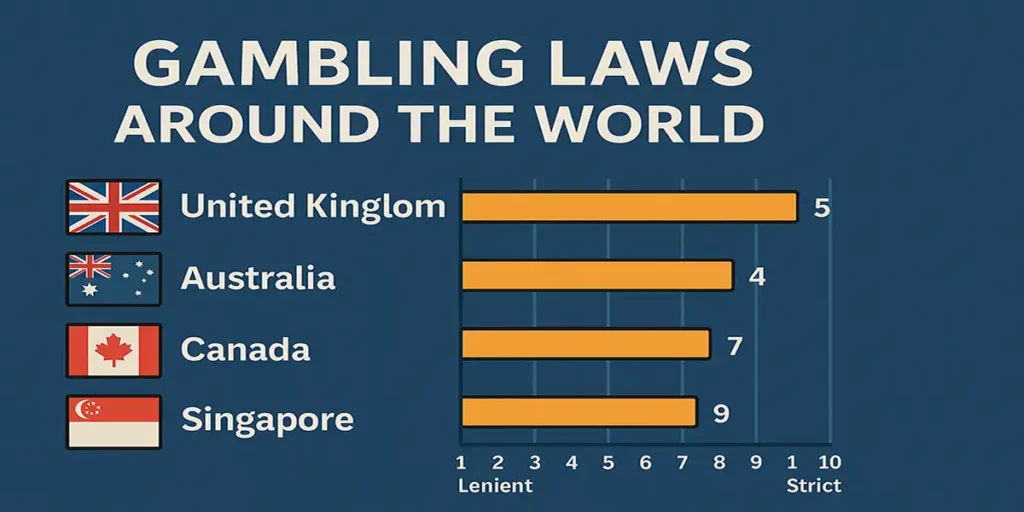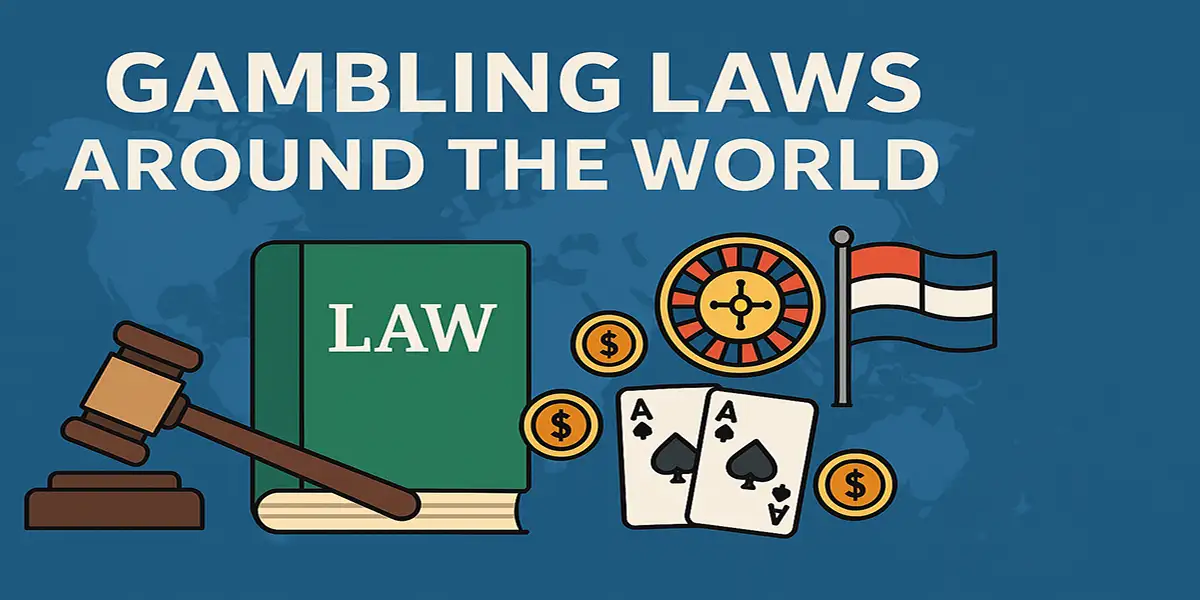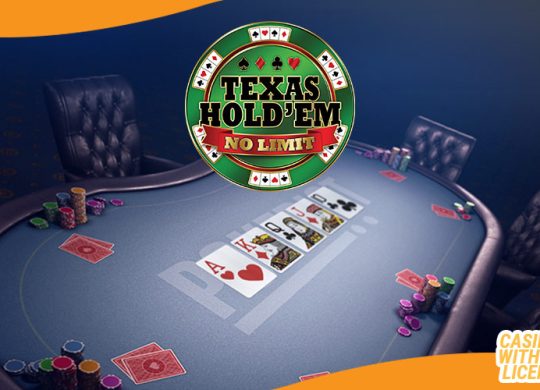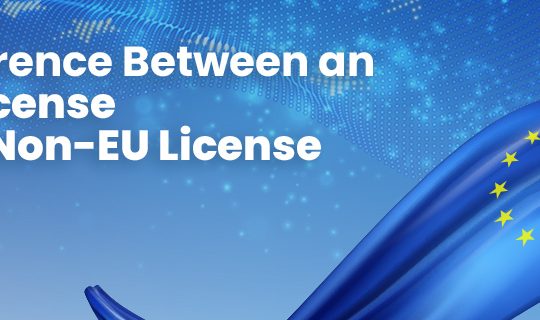📊 Quick Comparison of Gambling Regulations by Region
| Region | Online Gambling | Land-Based Casinos | Licensing System | Notable Restrictions |
| Sweden | Limited (licensed only) | Yes | State and Private (since 2019) | Bonus bans, strict ads |
| USA | State-dependent | Yes | State-level licenses | Federal & state taxes, patchwork laws |
| Canada | Yes (varies by province) | Yes | Provincial licensing | None for recreational players |
| Middle East | Mostly illegal | Rare | Strict bans | Based on Islamic law (haram) |
| India | Varies by state | Limited | Inconsistent | Many state-level bans |
| Australia | International only | Yes | Strict regulation | Ads & gameplay controls |
| Brazil | Sports betting legal | Limited | Expanding | Awaiting full casino law reform |
🇸🇪 Gambling Laws in Sweden and Northern Europe
Sweden’s gambling regulation is rooted in state control through Svenska Spel, although a licensing system was introduced in 2019 to allow private operators. Gambling is legal in Sweden. The Swedish Gambling Authority enforces strict rules against bonuses, credit cards, and excessive advertising to reduce problem gambling. Despite this, many Swedes still seek casinos utan svensk licens (casinos without a Swedish license).
In contrast:
- Norway retains a state monopoly through Norsk Tipping and Norsk Rikstoto, with tight restrictions on marketing and foreign operators.
- Denmark, however, is a success story of liberalized regulation. Since 2012, the Danish Gambling Authority has issued licenses to private companies, balancing player protection and market competitiveness.
🇺🇸 U.S. & 🇨🇦 Canada: Two Contrasts in North America
🇨🇦 Canada: Gambling Regulation by Province
In Canada, gambling laws are governed by provincial authorities. For instance, Ontario’s iGaming Ontario framework licenses online casinos and sportsbooks. Winnings are typically tax-free, unless earned professionally.
🧠 Tip: Canadian online gambling laws allow for more flexibility compared to the U.S.
🇺🇸 USA: Complex Federal and State Rules
The U.S. operates under a dual legal structure, where:
- Federal laws like UIGEA (Unlawful Internet Gambling Enforcement Act) restrict payment processors.
- States decide legality – e.g., Nevada is fully legal, Utah bans everything.
Online gambling is legal in 33 states, but regulations vary. Also note:
- Federal tax: Winnings over $600 must be reported.
- State taxes: Can reach up to 40% depending on jurisdiction.
🌍 Gambling Laws in the Middle East: Strict or Nonexistent
Most Middle Eastern nations prohibit gambling entirely, citing Islamic law. However, it exists al lot of so called Arab online casinos.
- Saudi Arabia: Absolute ban; severe penalties for violations.
- UAE: Prohibited, but Wynn Resorts is planning a 2027 launch in Ras Al Khaimah, possibly featuring limited gaming for tourists.
- Qatar & Kuwait: Only traditional betting like camel races is tolerated.
Despite bans, players in these countries access international online casinos licensed by Curacao or MGA.
🇯🇵 🇨🇳 🇸🇬 Gambling Laws in Asia: Legal Islands in a Sea of Restrictions
🇯🇵 Japan: Integrated Casino Resorts
Japan recently legalized integrated resorts that include casinos under strict oversight, complementing traditional games like pachinko and horse racing. It´s also very popular with visually vivid slot casinos.
🇨🇳 China vs. Macau
China has a zero-tolerance policy toward gambling, except for state-run lotteries. However, Macau functions as a legal gambling zone, attracting international tourists with its Las Vegas-style casinos.
🇸🇬 Singapore: Highly Regulated, Tourist-Oriented
Two major casinos, Marina Bay Sands and Resorts World Sentosa, operate with:
- Strict regulations
- Mandatory entry fees for locals
- Free access for foreign tourists
🇮🇳 India: Fragmented and Confusing Laws
India’s gambling regulation is a state subject, meaning:
- Some states (like Goa, Sikkim) allow casinos
- Others (like Gujarat, Tamil Nadu) ban all gambling
Online gambling remains in a legal grey area, but growth continues. Operators targeting India often use foreign licenses like MGA or Curacao.
🇦🇺 Australia: Strict Domestic Control, Loopholes for International Casinos
Australia boasts high gambling participation, with strict federal laws:
- The Interactive Gambling Act (2001) prohibits local operators from offering online casino games
- Australians can legally gamble on international sites
Each state oversees land-based casinos, with tight controls on problem gambling, self-exclusion tools, and advertising.

🌎 Gambling Legislation in South America
Latin American countries are modernizing fast:
- 🇧🇷 Brazil legalized sports betting and is working on broader casino reform.
- 🇦🇷 Argentina: Each province sets rules; Buenos Aires leads with online licensing.
- 🇨🇴 Colombia: A pioneer in legal online gambling with structured licensing.
- 🇨🇱 Chile: Reform efforts are underway to regulate online operators.
These reforms aim to combat black markets and boost tax revenue from a growing digital gambling audience.
✅ Summary: Where Is Gambling Legal in 2025?
| Country/Region | Legal Online Gambling | Licensing Body | Notes |
| Sweden | Yes (restricted) | Spelinspektionen | Strict advertising rules |
| USA | Varies by state | State Gambling Boards | High tax rates |
| Canada | Yes | Provincial authorities | No tax on recreational wins |
| UAE | No (casino coming 2027) | N/A | Tourist-only access |
| Macau (China) | Yes | DICJ | Legal gambling hub |
| Japan | Yes (IR only) | Casino Regulatory Commission | High investment in tourism |
| India | Varies by state | None unified | Legal grey zones |
| Australia | Yes (foreign sites) | ACMA | Domestic ban on online casinos |
| Brazil | Sports betting only | Under development | Expected casino law soon |
| Colombia | Yes | Coljuegos | Fully regulated online market |
🔗 Additional Resources
- 🎯 UK Gambling Commission
- 🌐 Malta Gaming Authority (MGA)
- 📊 iGaming Ontario
- 🇺🇸 U.S. State Gambling Laws Overview
📝 Final Thoughts
Understanding gambling law by country is essential for both players and operators in 2025. While some jurisdictions like Danish Gambling Authority, Canada, and Colombia offer regulated and safe gambling environments, others remain highly restrictive or are undergoing rapid change. As global attitudes toward gambling evolve, staying updated on international gambling laws will be crucial.










